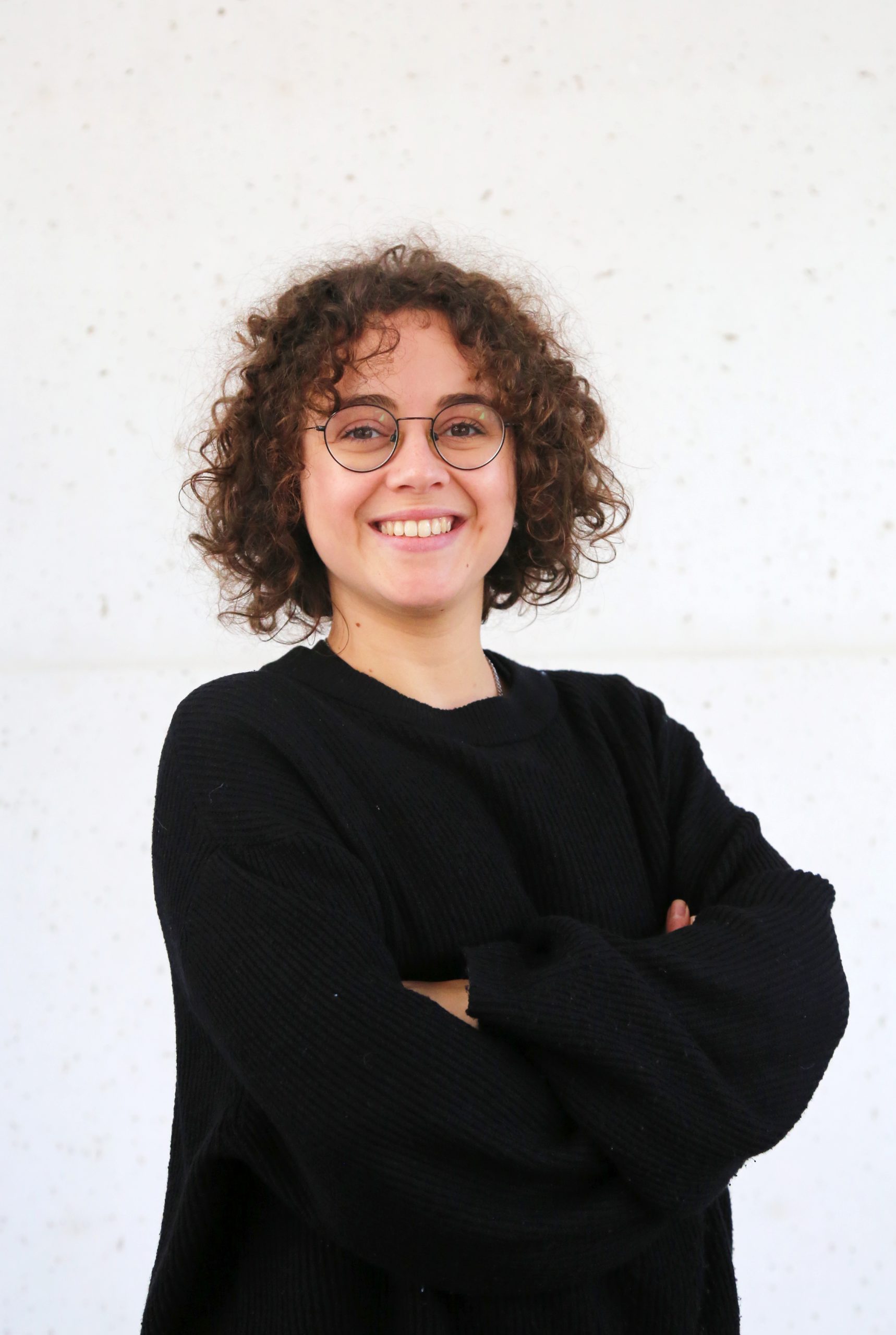- Research
- Brain Circuits and Neuron-glia Adaptations
- Sara Barsanti

- Astrocyte
- Glia
- behavior
- molecular
- brain circuit
- inhibition
- excitation
Sara Barsanti graduated in Biological Sciences (University of Bari Aldo Moro, Italy) in 2018 with a final project focused on the Therapeutic strategies to treat Congenital nephrogenic diabetes insipidus associated with a mutation in the vasopressin (ADH) receptor. SB moved then to the University of Turin (Italy) to pursue her MSc studies in Cellular and Molecular Biology, where she developed a strong interest for neuroscience. During that period, she had the opportunity to carry out a six-months traineeship at the Neuroscience Institute Cavalieri Ottolenghi (NICO) working with hippocampal adult neurogenesis in mice. Afer that, SB joined the Verhaagen group at the Netherlands Institute for Neuroscience (NIN), where she developed her thesis project on the role of Semaphorin3A in adult mice cerebellar plasticity. During this time, she focused on cognition and learning, and became independent in performing several techniques that englobe brain processing, immunohistochemistry, confocal microscopy, and molecular analysis (qRT-PCR). After the master, SB joined the group of Joao Oliveira (JO) at ICVS, supported by Erasmus traineeship, where she had the opportunity study the role of astrocytes in cognition and emotion, and to explore the potential of these cells in the treatment of mental disorders such as depression. The passion for these incredible cells led her to carry out a year of work as research trainee in the group of Paola Bezzi at the at the University of Lausanne where she worked on the role of astrocytes in the pathophysiology of 22q11.2 syndrome. SB is currently a PhD student in the Neuroscience Research Domain at ICVS, where she is involved in a project with the main goal of modulate and dissect the spatial and temporal properties of astrocyte signalling implicated in the cortico-limbic pathology.

- Astrocyte
- Glia
- behavior
- molecular
- brain circuit
- inhibition
- excitation
Sara Barsanti graduated in Biological Sciences (University of Bari Aldo Moro, Italy) in 2018 with a final project focused on the Therapeutic strategies to treat Congenital nephrogenic diabetes insipidus associated with a mutation in the vasopressin (ADH) receptor. SB moved then to the University of Turin (Italy) to pursue her MSc studies in Cellular and Molecular Biology, where she developed a strong interest for neuroscience. During that period, she had the opportunity to carry out a six-months traineeship at the Neuroscience Institute Cavalieri Ottolenghi (NICO) working with hippocampal adult neurogenesis in mice. Afer that, SB joined the Verhaagen group at the Netherlands Institute for Neuroscience (NIN), where she developed her thesis project on the role of Semaphorin3A in adult mice cerebellar plasticity. During this time, she focused on cognition and learning, and became independent in performing several techniques that englobe brain processing, immunohistochemistry, confocal microscopy, and molecular analysis (qRT-PCR). After the master, SB joined the group of Joao Oliveira (JO) at ICVS, supported by Erasmus traineeship, where she had the opportunity study the role of astrocytes in cognition and emotion, and to explore the potential of these cells in the treatment of mental disorders such as depression. The passion for these incredible cells led her to carry out a year of work as research trainee in the group of Paola Bezzi at the at the University of Lausanne where she worked on the role of astrocytes in the pathophysiology of 22q11.2 syndrome. SB is currently a PhD student in the Neuroscience Research Domain at ICVS, where she is involved in a project with the main goal of modulate and dissect the spatial and temporal properties of astrocyte signalling implicated in the cortico-limbic pathology.
Scientific Highlights
PAPERS
• “Astrocyte structural heterogeneity in the mouse hippocampus”
João Filipe Viana, João Luís Machado, Daniela Sofia Abreu, Alexandra Veiga, Sara Barsanti, Gabriela Tavares, Manuella M. et al; GLIA (2023),
https://onlinelibrary.wiley.com/doi/10.1002/ glia.24362.
• “Assessing Different Histological Preparations for Reconstruction of Astrocyte Tridimensional Structure”
Sara Barsanti, João Filipe Viana, Alexadra Veiga, João Luís Machado, Daniela Sofia Abreu, José Duarte Dias, Susana Monteiro, Nuno A. Silva , Luísa Pinto, João Filipe Oliveira Cells (2024).
https://doi.org/10.3390/cells13110969
Add Your Heading Text Here



Contact us
Phone: +351 253 604 967
Fax: +351 253 604 809
Email: icvs.sec@med.uminho.pt
Address
Life and Health Sciences
Research Institute (ICVS)
School of Medicine,
University of Minho,
Campus de Gualtar
4710-057 Braga
Portugal

Copyright ©2022 ICVS. All Rights Reserved



Copyright ©2022 ICVS. All Rights Reserved
Address
Life and Health Sciences
Research Institute (ICVS)
School of Medicine,
University of Minho,
Campus de Gualtar
4710-057 Braga
Portugal



Copyright ©2022 ICVS. All Rights Reserved
Address
Life and Health Sciences
Research Institute (ICVS)
School of Medicine,
University of Minho,
Campus de Gualtar
4710-057 Braga
Portugal


